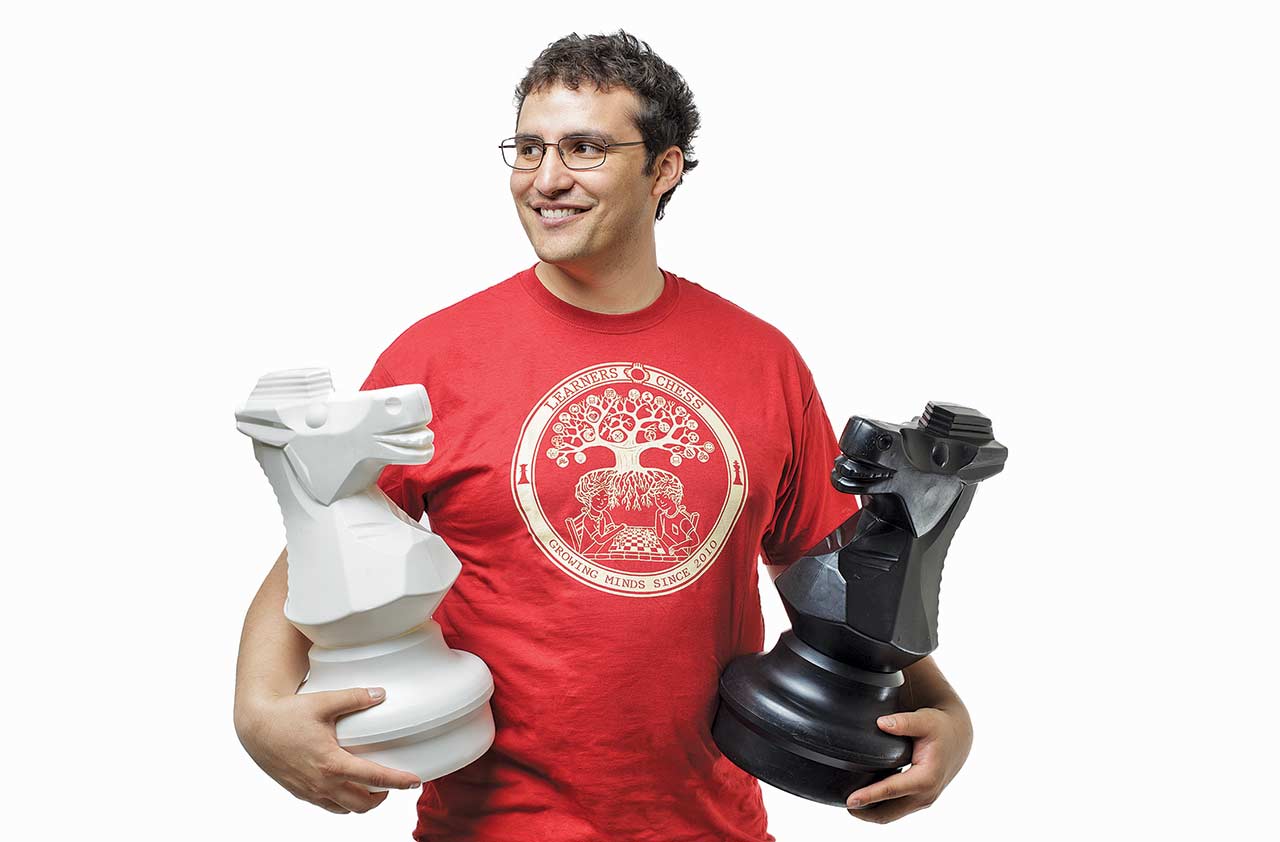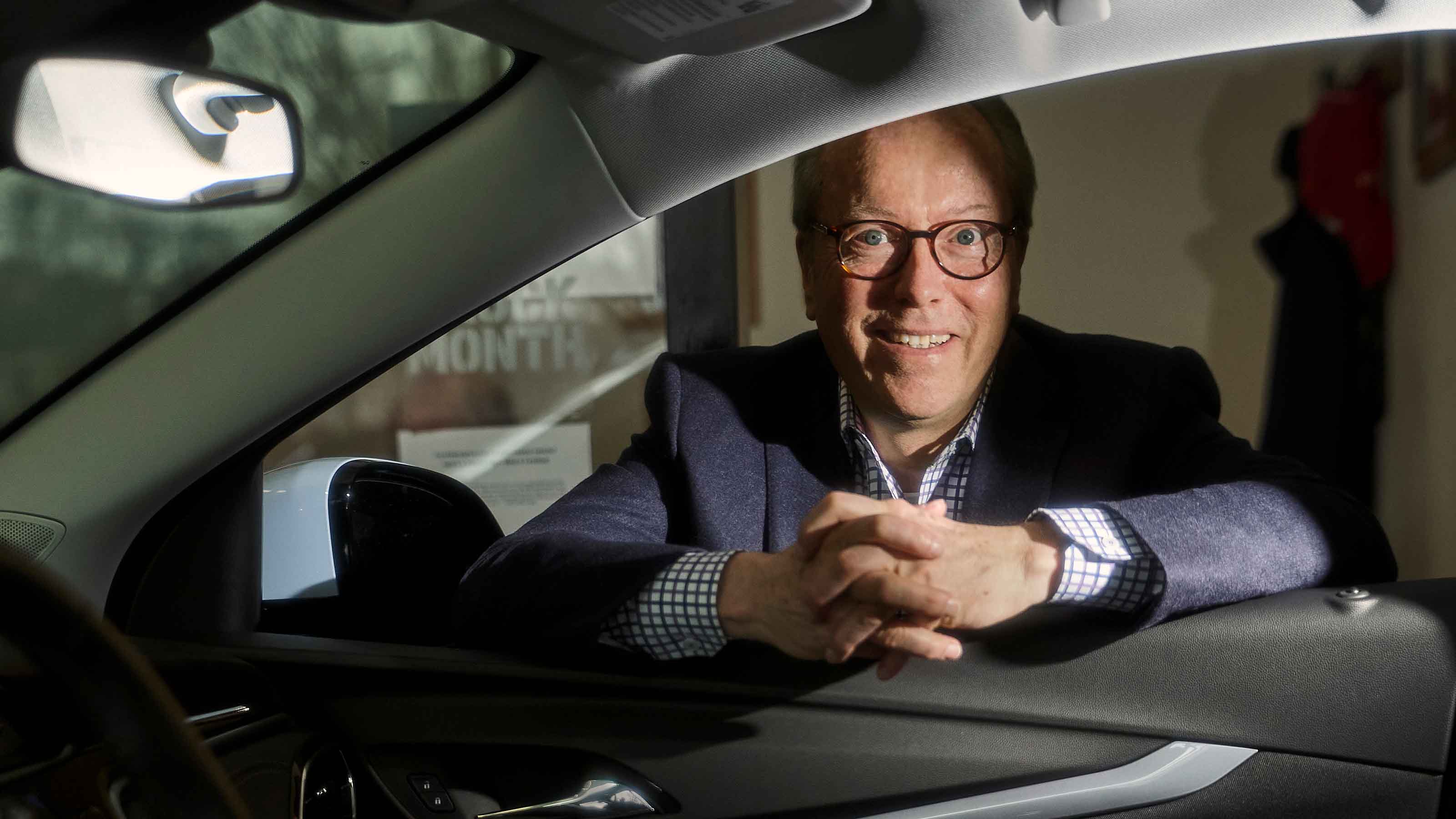Small-Business Success Story: Learners Chess Academy
His nonprofit uses chess to help kids succeed in and out of school.


Profit and prosper with the best of Kiplinger's advice on investing, taxes, retirement, personal finance and much more. Delivered daily. Enter your email in the box and click Sign Me Up.
You are now subscribed
Your newsletter sign-up was successful
Want to add more newsletters?

Delivered daily
Kiplinger Today
Profit and prosper with the best of Kiplinger's advice on investing, taxes, retirement, personal finance and much more delivered daily. Smart money moves start here.

Sent five days a week
Kiplinger A Step Ahead
Get practical help to make better financial decisions in your everyday life, from spending to savings on top deals.

Delivered daily
Kiplinger Closing Bell
Get today's biggest financial and investing headlines delivered to your inbox every day the U.S. stock market is open.

Sent twice a week
Kiplinger Adviser Intel
Financial pros across the country share best practices and fresh tactics to preserve and grow your wealth.

Delivered weekly
Kiplinger Tax Tips
Trim your federal and state tax bills with practical tax-planning and tax-cutting strategies.

Sent twice a week
Kiplinger Retirement Tips
Your twice-a-week guide to planning and enjoying a financially secure and richly rewarding retirement

Sent bimonthly.
Kiplinger Adviser Angle
Insights for advisers, wealth managers and other financial professionals.

Sent twice a week
Kiplinger Investing Weekly
Your twice-a-week roundup of promising stocks, funds, companies and industries you should consider, ones you should avoid, and why.

Sent weekly for six weeks
Kiplinger Invest for Retirement
Your step-by-step six-part series on how to invest for retirement, from devising a successful strategy to exactly which investments to choose.
Kiplinger's spoke with Victor Francisco Lopez, 31, founder and executive director of Learners Chess Academy, an Albuquerque, N.M.-based educational program that aims to enhance child development through playing the game of chess. Here, he discusses what motivated him to start the program and more. Read on for an excerpt from our interview:
What's your mission? We use chess to teach kids intellectual, social and leadership skills in school clubs and camps. The game is the medium, not the ultimate goal. The kids learn the rules, moves and tactics; practice analytical skills; and play chess puzzles and mazes. They practice mindfulness -- sitting and breathing -- to calm down and resume their decision-making after they lose a piece or make a bad move. They learn not to brag or talk too much while playing, as well as to respect their opponents. Many older players become junior leaders and teach newer players.
How did you learn to play chess? I learned from my dad when I was 5. In sixth grade, I joined a chess club at school. I loved it, and I noticed that as my game improved, so did my grades, and school became easier. I started a chess club at my sister's school and ran it until I graduated from high school. I’m a Class B player, meaning I'm in the 90th percentile of U.S. amateur players.
From just $107.88 $24.99 for Kiplinger Personal Finance
Become a smarter, better informed investor. Subscribe from just $107.88 $24.99, plus get up to 4 Special Issues

Sign up for Kiplinger’s Free Newsletters
Profit and prosper with the best of expert advice on investing, taxes, retirement, personal finance and more - straight to your e-mail.
Profit and prosper with the best of expert advice - straight to your e-mail.
Why did you start Learners? After college, I came home to start a micro-lending nonprofit while I went to business school and worked as a substitute teacher. One school asked me to coach its chess club. I thought, I forgot how really fun this is! Teachers told me, "You're literally coaching the kids to think." So in 2010, I started a summer camp, and the next summer I began pursuing Learners full-time.
How did you launch it? I borrowed $2,000 from my mom to print fliers, and I either cold-called school principals or took substitute-teaching jobs to develop relationships. I hired coaches who play chess, believe in our mission and are good with kids. Kids love our program, so we've grown through strong word of mouth, too.
Learners is a nonprofit? I started it as a sole proprietorship. But in 2012, I registered it with the IRS as a 501(c)3 nonprofit so I could gain access to more venues and raise more money for a need-based scholarship fund. The club costs $75 to $100 per semester, and the camps cost $150 per week of half days or $250 for full days. We offer need-based scholarships for 25% to 95% of the cost. We reinvest our profit into programs in low-income areas. I take a salary.
How big is Learners? In the 2016–17 school year, we reached about 1,700 children in chess clubs at 51 schools and chess camps over 11 weeks. So far, we’ve taught 7,055 children and awarded more than $72,000 in scholarships.
What's your greatest challenge? How we continue to grow and raise money to give more scholarships without losing the heart of who we are. Right now, we're doing exactly what we want to do without changing to meet, say, a foundation's requirements.
What's your greatest satisfaction? Seeing kids I taught become leaders and coaches. In the summer of 2016, two of our high school leaders spent 10 days teaching chess to 36 kids in a rural village in El Salvador. I was in tears almost every day watching them teach in the middle of the jungle.
Profit and prosper with the best of Kiplinger's advice on investing, taxes, retirement, personal finance and much more. Delivered daily. Enter your email in the box and click Sign Me Up.

-
 Dow Leads in Mixed Session on Amgen Earnings: Stock Market Today
Dow Leads in Mixed Session on Amgen Earnings: Stock Market TodayThe rest of Wall Street struggled as Advanced Micro Devices earnings caused a chip-stock sell-off.
-
 How to Watch the 2026 Winter Olympics Without Overpaying
How to Watch the 2026 Winter Olympics Without OverpayingHere’s how to stream the 2026 Winter Olympics live, including low-cost viewing options, Peacock access and ways to catch your favorite athletes and events from anywhere.
-
 Here’s How to Stream the Super Bowl for Less
Here’s How to Stream the Super Bowl for LessWe'll show you the least expensive ways to stream football's biggest event.
-
 How to Search For Foreclosures Near You: Best Websites for Listings
How to Search For Foreclosures Near You: Best Websites for ListingsMaking Your Money Last Searching for a foreclosed home? These top-rated foreclosure websites — including free, paid and government options — can help you find listings near you.
-
 Four Tips for Renting Out Your Home on Airbnb
Four Tips for Renting Out Your Home on Airbnbreal estate Here's what you should know before listing your home on Airbnb.
-
 Is Relief from Shipping Woes Finally in Sight?
Is Relief from Shipping Woes Finally in Sight?business After years of supply chain snags, freight shipping is finally returning to something more like normal.
-
 Economic Pain at a Food Pantry
Economic Pain at a Food Pantrypersonal finance The manager of this Boston-area nonprofit has had to scramble to find affordable food.
-
 The Golden Age of Cinema Endures
The Golden Age of Cinema Enduressmall business About as old as talkies, the Music Box Theater has had to find new ways to attract movie lovers.
-
 Pricey Gas Derails This Uber Driver
Pricey Gas Derails This Uber Driversmall business With rising gas prices, one Uber driver struggles to maintain his livelihood.
-
 Smart Strategies for Couples Who Run a Business Together
Smart Strategies for Couples Who Run a Business TogetherFinancial Planning Starting an enterprise with a spouse requires balancing two partnerships: the marriage and the business. And the stakes are never higher.
-
 Fair Deals in a Tough Market
Fair Deals in a Tough Marketsmall business When you live and work in a small town, it’s not all about profit.